Mini IVF
Mini IVF
Several years ago, a couple of centers reported that if a woman had an FSH level over 15, her success rate with in vitro fertilization (IVF) was zero. Since then, most physicians held strongly to this belief when advising women as to their best options for having children. Over the years, this hypothesis was challenged based on the belief that nature provides a mechanism for selecting good eggs that is overridden by the strong stimulation protocols used in conventional IVF. The concept of “minimal” cycle IVF has developed as a result of this work, and it has been shown that women with poor prognosis, like high FSH levels, can conceive viable pregnancies.
Minimal IVF Process
With minimal IVF, the oral medication clomiphene citrate (Clomid) and low doses of injectable hormones are used to obtain a small number of eggs and avoiding premature ovulation, while avoiding hyperstimulation. Examples of potential candidates would be women who do not produce larger numbers of eggs on higher doses and women with poor egg quality in prior cycles.
Physiology of Ovulation
From fetal life to menopause, several follicles begin to mature over a period of 4-8 weeks. In the absence of rising FSH levels, these follicles die. When a woman reaches puberty and the cyclic release of FSH and LH begin, the single follicle most efficient at using FSH takes over and becomes the “dominant” follicle. The other follicles undergo a process of dying, called atresia. IVF stimulation protocols use high doses of FSH to salvage these follicles destined to die. That is why the majority of eggs obtained in an IVF cycle do not produce high quality embryos or viable babies. Still, for women who respond well to these drugs, conventional IVF still offers the best chance for success in a single attempt. Further, the frozen embryos that result from many of these cycles increase the efficiency of the process if pregnancy does not occur or the couple desires a sibling later on.
For women with elevated FSH levels, previously poor responses, and recurring poor embryo quality, the cost and side effects of high-dose protocols may not be worthwhile. While controversial, some physicians believe that these protocols may lower egg vitality or decrease uterine receptivity, making this approach even less desirable for these poor prognosis patients.
Philosophical Approach
The keys to success with minimal IVF are individualization of treatment and patience. Each woman’s situation must be considered separately in deciding what protocol to use. Patients and clinicians need to be patient and understand that there will be setbacks, like failed egg retrievals and cancelled cycles. However, since the emotional, physical, and financial costs of commencing these cycles is lower, it may be easier for women to get back into treatment and try again quickly.
Traditional IVF Cycle: UP TO $4k OFF
Begin your IVF treatment before December 31, 2021 to become eligible for $1k OFF for your first traditional IVF cycle, $3k OFF your second cycle, or $4k OFF your third cycle… regardless of where your previous IVF treatments occurred! This means your traditional IVF cycle at any of one of our nine fertility clinics across Southern California can begin as low as $5,600.
According to FertilityIQ.com, the average cost of IVF in Los Angeles fertility clinics is $13,325. Your traditional IVF cycle at HRC Fertility includes:
- Office visits and cycle ultrasounds (start of IVF cycle through transfer)
- Lab test during cycle (Estradiol, Progesterone, LH levels only)
- Egg Retrieval
- Creation of Embryos
- Fresh Embryo Transfer included
- IVF labs works and facility fees for surgical center
- One pregnancy test after transfer is completed
- Restrictions apply
Does not include the cost of medications, PGT-A, ICSI, assisted hatching, freezing, storage or additional services. Additional restrictions may apply. Cannot be combined with any other offers. Applicable for non-insured patients only.
For All-Inclusive IVF Cycles, see DREAM Package below.

